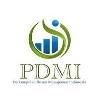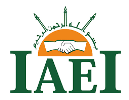The Importance of Innovation in Learning Facilities to Support Student Competency Development
Abstract
Innovative learning environments play a critical role in fostering key competencies in higher education. The research was conducted using a survey method involving the participation of alumni representatives from all study programs at UINSU. Based on the findings from 490 samples alumni, it is known that the emphasis on learning and learning aspects contribute significantly to predicting the perception of competence possessed by alumni (Y). However, learning facilities do not significantly contribute to Y. Based on the findings, facilities such as laboratories, libraries, and classrooms were deemed statistically insignificant in affecting competency development. Instead, learning methods, student engagement, and teaching quality played a more dominant role. Some of the causes of insignificant learning facilities are underutilization of resources, traditional teaching, and access barriers. The recommended improvement is innovation in evolve to become more integrated with teaching methods, fostering active, experiential, and collaborative learning. Universities should focus not only on building modern facilities but also on ensuring these facilities are effectively utilized to support competency development.
Keywords: Leaning facilities innovation, Competency development, Higher studies
Full Text:
PDFReferences
C. K. Prahalad and G. Hamel, “The core competence of the corporation,” Knowledge and Strategy, pp. 41–60, 2009, doi: 10.1093/oso/9780198781806.003.0017.
C. Zook, Beyond the Core: Expand Your Market Without Abandoning Your Roots. 2004.
F. Martin, Y. Chen, B. Oyarzun, and M. Lee, “Learning and development roles and competency domains in higher education: a content analysis of job announcements,” J Comput High Educ, vol. 34, no. 2, pp. 297–320, Aug. 2022, doi: 10.1007/s12528-021-09290-2.
Republik Indonesia, “Peraturan Menteri Pendidikan dan Kebudayaan Nomor 3 Tahun 2020 tentang Standar Nasional Pendidikan Tinggi,” Jakarta, 2020.
the world bank, Indonesia Economic Prospects. Jakarta, 2020. [Online]. Available: https://www.worldbank.org/en/country/indonesia/publication/indonesia-economic-prospect
BPS-Statistics Indonesia, Keadaan Angkatan Kerja di Indonesia, no. August 2022. 2022.
B. Dharma, Marliyah, M. Yafiz, and A. M. B. Syarbaini, “Analisis Implementasi Pendekatan Transdisipliner Pada Pelacakan Alumni FEBI UIN SU Medan,” Medan, 2022.
Marliyah, B. Dharma, M. Yafiz, and A. M. B. Syarbaini, “Analisis Kebutuhan Industri Keuangan Syariah Terhadap Kompetensi Luaran Pendidikan Tinggi Islam,” HUMAN FALAH: Jurnal Studi Ekonomi dan Bisnis Islam, vol. 9, no. 2, p. 10, Dec. 2022, doi: 10.30829/hf.v9i2.13625.
F. N. Romadlon and M. Arifin, “Improving Graduate Profiles Through Tracer Studies at University,” KnE Social Sciences, Jul. 2021, doi: 10.18502/kss.v5i7.9317.
K. Trigwell, P. Ashwin, and E. S. Millan, “Evoked prior learning experience and approach to learning as predictors of academic achievement,” British Journal of Educational Psychology, vol. 83, no. 3, pp. 363–378, Sep. 2013, doi: 10.1111/j.2044-8279.2012.02066.x.
S. Wahyuni, “English Language Needs for Medical Students: A Link and Match of Academic and Professional Career,” ENGLISH FRANCA : Academic Journal of English Language and Education, vol. 5, no. 1, p. 169, May 2021, doi: 10.29240/ef.v5i1.2146.
I. Ardi, J. Rahmat Pramudia, and V. R. Hasanah, “Analysis of Link and Match Policy Implementation on Human Resource Development in Non-Formal Education,” Jurnal Scientia, vol. 12, no. 2, p. 2023, 2023, [Online]. Available: http://infor.seaninstitute.org/index.php
Kardoyo and L. K. Pitaloka, “Link and Match Education in Indonesia: Implementation of New Policies? Effectiveness of Education Policy Implementation in Indonesia,” in Proceedings of the Unima International Conference on Social Sciences and Humanities (UNICSSH 2022), 2023, pp. 562–570. doi: 10.2991/978-2-494069-35-0_69.
G. Wibisono, B. S. Wijanarka, and H. Theophile, “The Link and Match between the Competency of Vocational High Schools Graduates and the Industry on CAD/ CAM and CNC,” Jurnal Pendidikan Teknologi dan Kejuruan, vol. 26, no. 1, pp. 26–34, Apr. 2020, doi: 10.21831/jptk.v26i1.27932.
U. Khasanah, “Link and Match Program with Business and Industry (DU/DI) As An Effort for Placement of Graduates at SMK Muhammadiyah Delanggu,” Journal of Islam and Science, vol. 7, no. 2, p. 79, Dec. 2020, doi: 10.24252/jis.v7i2.16455.
A. G. Tamrin, S. Slamet, and S. Soenarto, “The link and match of the demand and supply for productive vocational school teachers with regard to spectrum of vocational skills in the perspective of education decentralization,” Jurnal Pendidikan Vokasi, vol. 8, no. 1, p. 40, Feb. 2018, doi: 10.21831/jpv.v8i1.15135.
C. Uline and M. Tschannen‐Moran, “The walls speak: the interplay of quality facilities, school climate, and student achievement,” Journal of Educational Administration, vol. 46, no. 1, pp. 55–73, Feb. 2008, doi: 10.1108/09578230810849817.
B. Bungin, Post-Qualitative Social Research Methods, Ketiga. Jakarta: Kencana, 2022.
S. Sinulingga, Metode Penelitian. Medan: USU Press, 2017.
Marliyah, M. Yafiz, B. Dharma, and A. M. B. Syarbaini, “’Amid: Islamic Integrative Approach as Survey Model,” Indonesian Journal of Islamic Literature and Muslim Society, vol. 7, no. 1, pp. 17–32, Mar. 2023, doi: 10.22515/islimus.v7i1.5406.
E. Fischer and M. Hänze, “Back from ‘guide on the side’ to ‘sage on the stage’? Effects of teacher-guided and student-activating teaching methods on student learning in higher education,” Int J Educ Res, vol. 95, pp. 26–35, 2019, doi: 10.1016/j.ijer.2019.03.001.
J. Jovanović, D. Gašević, S. Dawson, A. Pardo, and N. Mirriahi, “Learning analytics to unveil learning strategies in a flipped classroom,” Internet High Educ, vol. 33, pp. 74–85, Apr. 2017, doi: 10.1016/j.iheduc.2017.02.001.
T. Pascarella and P. Terenzin, How College Affects Students, A Third decade of Research. San Francisco: Jossey-Bass, 2005. doi: http://dx.doi.org/10.14426/jsaa.v2i2.80.
A. Ahsanuddin, “Exploring Islamic Education Learning Based On Boarding School In Building Students Ethic At Islamic Junior School Al-Islah, Maros,” JICSA (Journal of Islamic Civilization in Southeast Asia), vol. 11, no. 2, pp. 265–291, Jan. 2023, doi: 10.24252/jicsa.v11i2.35255.
L. Li, L. Yang, M. Zhao, M. Liao, and Y. Cao, “Exploring The Success Determinants of Crowdfunding for Cultural and Creative Projects: An Empirical Study Based on Signal Theory,” Technol Soc, vol. 70, p. 102036, Aug. 2022, doi: 10.1016/j.techsoc.2022.102036.
DOI: http://dx.doi.org/10.30829/jombi.v5i01.21775
Refbacks
- There are currently no refbacks.
Copyright (c) 2024 Budi Harianto







